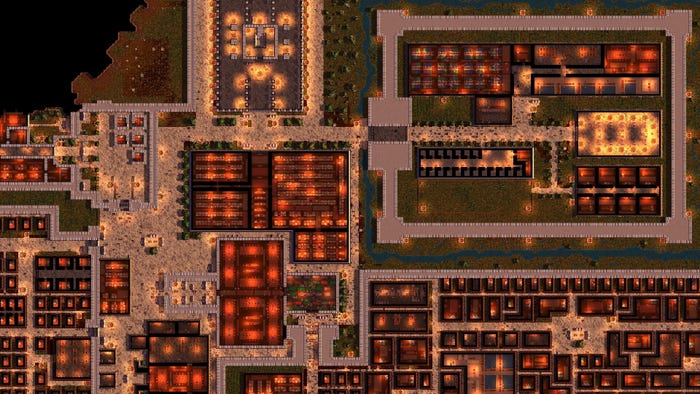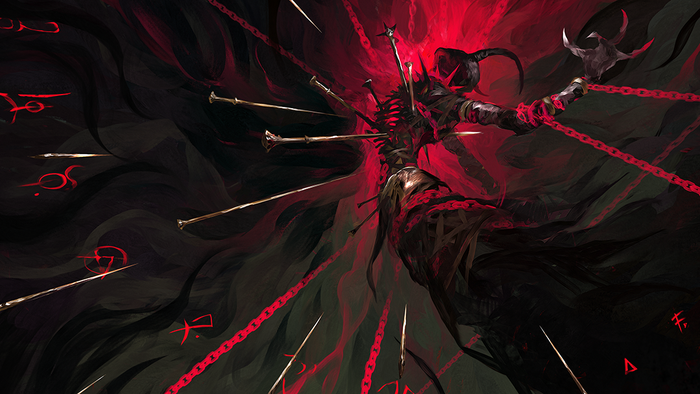
Featured Blog | This community-written post highlights the best of what the game industry has to offer. Read more like it on the Game Developer Blogs.
Why Bethesda should reveal Paid Mods 2.0 soon
Bethesda now has a more compelling business case than ever to resurrect its controversial paid mods system ("Paid Mods 2.0"), with its cross-platform mod system, Bethesda.net. But it has a narrow window of opportunity.

Since the death of Bethesda and Valve's "paid mods" system in April 2015, there has been persistent speculation on modding forums that Bethesda intends to re-introduce paid mods at some point in the future.
Fuelling this speculation in April 2016, Todd Howard (Bethesda’s Creative Director) made some comments about the scrapped paid mods system in an interview with Newsweek:
“I think we went right to the ultimate, just totally open and whatever goes, goes. But it's like blasting someone into the vacuum of space without astronaut training…”
He then added:
“If something doesn't go well we'll keep at it.”
These comments suggest that Bethesda may make another attempt at a paid mods system, this time one that isn’t “totally open”. In other words, while Bethesda made the original system "uncurated" (meaning that anybody could sell anything for any price), in the future it may look to make a "curated" system in which Bethesda could place limits on who can sell mods, what can be sold, and/or for how much they could be sold. Let's call this Paid Mods 2.0.
Adding further fuel to speculation about Paid Mods 2.0 is the recent launch of Bethesda's own platform for sharing mods, Bethesda.net. This platform has allowed Bethesda to make modding cross-platform, massively increasing the audience for mods. In fact, Newsweek reported in April 2016 that nearly 20 million Xbox One gamers had downloaded mods from Bethesda.net since its launch. We're told support for mods on PS4 is on its way. While Bethesda may simply have created this platform selflessly to bring the joy of modding to console users, this platform also puts Bethesda in a position where - if it launches Paid Mods 2.0 – it now stands to take a much greater share of revenue than it would have under the original paid mods system, because Valve is no longer involved. All of this means that Bethesda now has a much more compelling business case to launch a paid mods system than it did in 2015.
Bethesda has already hosed down speculation that paid mods will return along with the launch Skyrim Special Edition on 28 October 2016, with Pete Hines (Bethesda's VP of PR and Marketing) tweeting "we won't do paid mods." What that means is: Bethesda doesn't intend to reintroduce paid mods yet.
This begs the question: what is Bethesda waiting for? It may be that Bethesda wants to entice console users into the world of modding - allowing them to see the value of mods - before it reveals Paid Mods 2.0. It may also be that Bethesda is waiting for animosity toward paid mods to die down, although the volume of ongoing speculation and internet chatter suggests this may not happen any time soon.
What is clear is that if Bethesda wants to launch Paid Mods 2.0, and get the timing right, it will need to understand the root causes of opposition to paid mods.
What follows is a critical evaluation of the arguments for and against paid mods. It is not an opinion piece, nor is it a fence-sitting editorial which pretends that all views have equal merit (sometimes called "the bias toward fairness").
The arguments for paid mods
1. Bethesda is entitled to introduce paid mods.
From a rights-based perspective, Bethesda is entitled to sell intellectual property which it and modders agree to sell. On the other hand, the role of mod users, as prospective purchasers, is limited to either buying a mod, or not buying it. They have no automatic right to mods, nor are they entitled to decide whether mods should be available for sale.
2. It’s inherently fair for people to expect payment for their work.
This should be self-explanatory, but here’s an illustration: Imagine your neighbor is an amateur handy-man and has done some alterations to your house for free because he enjoys it. Now imagine one days he says he’s started his own business and is going to start charging a (modest) fee for his services from now on. If you want his services, your options are either (a) pay for his services, if they’re valuable to you, or (b) decline his services. No reasonable person could deny his right to charge for his services. This is because it’s inherently fair for people to expect payment for their work.
3. The current system benefits everyone except modders.
Under the current system:
Bethesda benefits commercially from mods (even when they're free) because its games attract a strong following thanks in part to the mods that are available.
Mod users get to enjoy a massive amount of additional content.
Robin Scott, owner of the Nexus mod hosting site, derives a profit from advertising on his site.
Streamers, who broadcast themselves playing Bethesda games loaded up with mods, often receive advertising revenue and donations/subscriptions.
Modders lose money. This is because making mods tends to take a lot of time, and time has a monetary value. To illustrate the point, modder Jonx0r wrote that making celebrated Skyrim mod Wyrmstooth took him approximately 2,000 hours. He subsequently told me he had decided to quit modding because of the heavy toll his hobby had taken on his career.
4. A paid mods system will result in better mods.
Economics 101 tells us that giving modders a chance to profit from their work would help attract and retain talented modders, and keep them motivated to do their best work. In a competitive marketplace, mod users would collectively reward modders for offering good quality mods, and penalize them for offering bad ones. Over time these market forces would create an abundance of good quality mods, while competition between modders would keep downward pressure on prices.
This system might even also allow some modders to generate enough income that they could work on modding full time, producing content much more efficiently than they could working only in their spare time.
The arguments against paid mods
1. The market will be flooded with bad or overpriced mods.
Economics 101 tells us that in competitive markets, bad or overpriced content generally doesn’t sell.
In the case of bad content (buggy or “not as advertised” mods), consumers would be able to leave negative ratings and reviews, warning others of the problem, and obtain refunds. These features were present in the original paid mods system, and would presumably be present in Paid Mods 2.0. Further, because of these features, modders would have a very strong (financial) incentive to improve the quality of their work, which would result in a general increase in quality across the board.
In the case of overpriced content, very few mod users would buy it. Creators of that content would quickly lower their prices. Realistically, in a paid mods system, the pricing “sweet spot” for each type of mod would eventually be determined by the amount of money most people are comfortable spending. Consumers could collectively exert downward pressure on prices by refusing to pay for content until it came into an acceptable range. In the case of major, high-quality content mods I would expect the sweet spot to be around $5, and for mods that make minor changes to textures or gameplay, I would expect prices to be either a fraction of a dollar, or free.
Further, competitive online marketplaces tend to make it easy to browse for content by category, as well as promoting popular content on special lists (such as Steam’s “Popular new releases” and “Top sellers” list). Such features ensure that popular mods receive extra attention, while bad content disappears into obscurity.
2. Modders will all try to make low effort / high reward mods.
In a competitive market, an oversupply of a particular type of content tends to drive the price down. This means that if, for example, large numbers of individual modders were to create texture mods because production is quick and easy and they fetch a reasonable price, there would be such fierce competition that they would all have to lower their prices in the medium to long term, making this practice unsustainable.
Similarly, an undersupply of a particular type of content would incentivize modders to create that content. For example, if there is gap in the market for quest mods, then enterprising modders would eventually fill that gap.
In other words, market forces would naturally correct any problems with oversupply or undersupply, as over time, modders would respond to the demands of mod users.
3. Mods aren’t worth paying for.
Valve announced that as of January 2015, sales of mods for its games had generated $57 million shared between 1500 modders, so clearly there is a market for paid mods, and a large audience of people willing to pay for mods.
This argument appears to be an attempt to devalue the work of modders in order to ensure access to mods remains free. Since mod users want mods, it follows that mods have some value. In fact, mod users were so determined to retain access to free mods that in April 2015 they ran a protest campaign against the original paid mods system, in which over 130,000 people signed a petition on Change.org. Clearly this is a sign many people value mods very highly.
4. A better system would be a donations system.
This is one of the more curious arguments made against a paid mods system, for two reasons:
First, this argument is usually presented as though a donations system would be a compromise between the current system, and a paid mods system. In fact, there is already a donations system in place on the Nexus and it has been in place since before the paid mods system was introduced. The fact that many opponents of paid mods seem to be oblivious to the existing donation system suggests very strongly they have never made a donation. Second, no matter how good a mod is, the number of people who donate will be negligible. I made a mod which drew critical acclaim, being described by Skyrim Mods Weekly as one of the two best Skyrim mods of all time, and yet fewer than 0.02% of players donated. In other words, continuing with the current “donation system” simply means that, in practice, over 99.98% of people will access the content for free.
5. Modders who want to sell their mods are just greedy.
In the “modding community” there are two groups of people:
Modders: a small group of people who create content in their spare time (and who also use mods); and
Mod users: a large group of people who create no content, but use mods created by modders.
In my experience, the overwhelming majority of mod users who download a mod do not acknowledge its author. Of the 220,000 people who downloaded my mod, The Forgotten City, as of July 2016:
7% of players returned to the mod platform site to “endorse” or rate the mod
0.8% left a comment; and
0.02% made a donation.
Hence, the idea that it is modders here who are "greedy", and not those mod users who seek to deny modders the opportunity to generate income from their largely thankless work, is a curious one.
In many cases, mods take hundreds or thousands of hours to create, as in the case of Wyrmstooth (2000 hours) and The Forgotten City (1700 hours). As above, this time has a monetary value. Allowing modders to set a price for their work would give them a chance to recover some or all of the time/money they invested in their mods. Further, it would allow them to pay the often-talented artists who contribute to their work, such as composers and voice actors.
6. Bethesda is just being greedy.
Under the original paid mods system, Bethesda proposed to take a cut of revenue generated from mods. Some people argued that this was a “cash grab” by Bethesda.
In a paid mods system, it’s arguably reasonable that Bethesda should expect some cut of the revenue. After all, it was Bethesda who made modding possible by creating successful games and modding tools and online resources (wikis and video tutorials) to support those tools. Further, setting up and operating a secure multi-platform online marketplace for mods necessarily involves overheads, like software engineers and servers and admin staff.
Further, it is generally accepted that with online marketplaces, the owner of the marketplace takes a cut. In the PC Games market, Valve takes a 30 – 35% cut from all games sold on Steam. Bethesda taking a cut from the selling of mods on its platform would be fundamentally no different.
7. It’s not fair that modders only get 25% of the revenue.
It’s true that under the original paid mods system, the modder would only receive a 25% cut, whereas the remainder would be divided between Bethesda (45%) and Valve (30%). Some people argued the modder should get a bigger cut.
It’s not worth debating the merits of that particular split, because if Bethesda reintroduced a paid mods system on Bethesda.net, Valve would not be involved and so the revenue would be split between Bethesda and the modder only. Hence, Bethesda would be able to introduce a split that was more palatable to modders, such as 50/50.
However, whatever share Bethesda decided to apportion to modders would be better than 0%. Think of it this way: In a negotiation, if you’re offered 25% and push for a higher cut, then end up with nothing: you’ve lost everything. Hence, the alleged unfairness of the split really is not a compelling reason to oppose a paid mods system altogether.
8. Some people will steal mods made by others and sell them as their own.
A thriving paid mods system would generate sufficient revenue that Bethesda could afford to pay full-time admin staff to monitor complaints about stolen content. It would be very easy for the admin staff to verify complaints that content has been stolen, because the original content would generally have been uploaded before the stolen content. Further, it would be very easy for modders to secretly insert their names or other messages into the files comprising their mods, so that in the event of a dispute they could prove ownership. Hence, provided Bethesda committed to the efficient administration of Bethesda.net, this is not a compelling reason to oppose paid mods.
9. People will just pirate mods.
Some piracy is inevitable in the PC games market. And yet, the PC games market continues to thrive. Clearly, piracy is not a reason to shut down the market altogether. Hence, the risk of mod piracy has no relevance to whether or not modders should have the right to set a price for their work.
In any event, even if piracy became rampant on PC, it would be rare if not impossible on consoles, which would be a much bigger market in any case. So modders could still profit from selling mods on those other platforms. Hence, potential piracy is not a reason to oppose paid mods.
10. Paid mods will kill collaboration.
This argument is based on the premise that there is a lot of collaboration and sharing of information between modders, and the fear that introducing commercial competition may kill that collaborative dynamic. To see whether commercial competition kills collaboration and information sharing, we need only look at the indie games industry, where developers form extensive networks and exchange information regularly, even though they are technically competitors. Sharing information is a valid way of increasing one’s profile and extending one’s network. Clearly, a profit motive hasn’t stopped this exchange of information in other communities, so there’s no reason to think it will do so in a paid mods system.
In fact, I would expect to see new forms of collaboration emerge: the potential for profit would drive enterprising modders to band together into teams. Since collaboration and the division of labor makes projects more efficient, teams of professional modders would be able to create more content, more often than they could working as individuals.
11. Modders who want to make money should just get a job in game development or make an indie game.
At best, this statement is an attempt to dissuade enterprising modders from participating in a paid mods system by suggesting an alternative path. Unfortunately, that suggestion is somewhat naïve and impractical. This is because for many modders, a career in game development is simply not a viable option. Reasons for this depend on the individual, but some common ones include:
very few studios make the kind of games Bethesda game modders are interested in;
game development companies are renowned for offering unattractive working conditions;
many modders live in countries (ie. outside the US) where game development industries are not well developed, and can’t or don’t want to relocate; and
indie game development is a notoriously speculative way to make a living.
At worst, this statement could be taken as an attempt to ostracize enterprising modders from the modding community (“If you don’t like the status quo, go somewhere else.”). Of course, this position is not well thought out, because if (hypothetically) all enterprising modders did find employment in the game development industry, that exodus would take a serious toll on mod users' supply of free content.
12. Modders should just mod for fun.
The reality is that modders make mods for their own reasons – whether it’s fun, or learning, or a creative outlet, or an intellectual challenge, or to create a folio piece that might land them a job one day. Nobody is entitled to dictate to other people what should motivate their work. In any case, if you find modding fun, and you can make money out of it too, why wouldn’t you? Isn't that the dream?
13. I’m a modder and I don’t want to charge for my work.
Under a paid mods system, nobody is forced to charge for their work, and there are valid reasons why you might want to make your mods freely available. In fact, there is a movement within the modding community called "Forever Free" in which some modders have pledged to make their mods available for free indefinitely. A certain number of modders offering their mods for free would be one way of ensuring prices for comparable mods remain low. Free mods and paid mods are entirely compatible. A desire not to charge for your mods is not a reason to oppose the right of others to charge for theirs.
14. Modders may not provide tech support for their mods.
Mods, like games, inevitably have bugs. When those bugs arise, mod users can seek technical support. Bethesda’s paid mods system was set up so that mod users would be able to request refunds where they were dissatisfied with the mod’s performance. That being the case, a paid mods system would give modders a strong incentive to fix bugs and provide technical support – certainly a much stronger incentive than exists at present.
15. Some mods require other mods/software to work.
Some mods depend on other mods to work. In a scenario where both mods are for sale, mod users would need to either buy both mods, or neither. Modders would quickly discover the wisdom of minimising dependencies.
However, in some cases, mods are dependent on software which is technically not a mod and/or not for sale, for example, the Skyrim Script Extender (SKSE). The common argument goes that it’s unfair for modders to make money from their mods when the makers of SKSE don’t make anything. This concern is baseless because the creators of SKSE have stated they were comfortable with paid mods using SKSE. However, since SKSE (or its equivalent for other games) will reportedly not run on consoles, it would be wise for modders who wish to sell their mods on all platforms to simply eliminate any dependencies on such software. It is entirely possible to make high quality, complex mods that do not depend on SKSE.
Evaluation
As we have seen, there are many compelling arguments in favor of a paid mods system: it's inherently fair for people to expect payment for their work, the current system benefits everyone except modders, and Paid Mods 2.0 would result in high quality, low-cost mods.
On the other hand, it appears none of the common arguments against paid mods stand up to critical evaluation. Why, then, do these arguments persist? The simplest explanation is that proponents of these arguments are "clutching at straws" in an effort to retain access to free mods. It is understandable that PC mod users, many of whom have enjoyed the privilege of access to free mods since as far back as 2002, would want it to continue. It appears that many of them have become so accustomed to this privilege that they now perceive it as an entitlement. Accordingly, they see the introduction of a paid mods system as an attempt to take away that entitlement.
The truth is, of course, that nobody is entitled to free access to the work of other people. Bethesda and modders are, and should be, entitled to decide what happens with the content they create.
Bethesda's window of opportunity
Bethesda has a right – and an increasingly compelling business case – to reintroduce a paid mods system. The main obstacle in its way is the sense of entitlement to free mods that caused a vocal minority of PC mod users to protest against paid mods in 2015. That sense of entitlement has not yet spread to console gamers, who make up the vast majority of Bethesda's customer base. Hence, there is a window of opportunity in which Bethesda can launch Paid Mods 2.0 without encountering a larger version of the 2015 backlash. If Bethesda waits so long that console gamers develop the same sense of entitlement to free mods, its business case for Paid Mods 2.0 will disappear.
Read more about:
Featured BlogsAbout the Author(s)
You May Also Like









